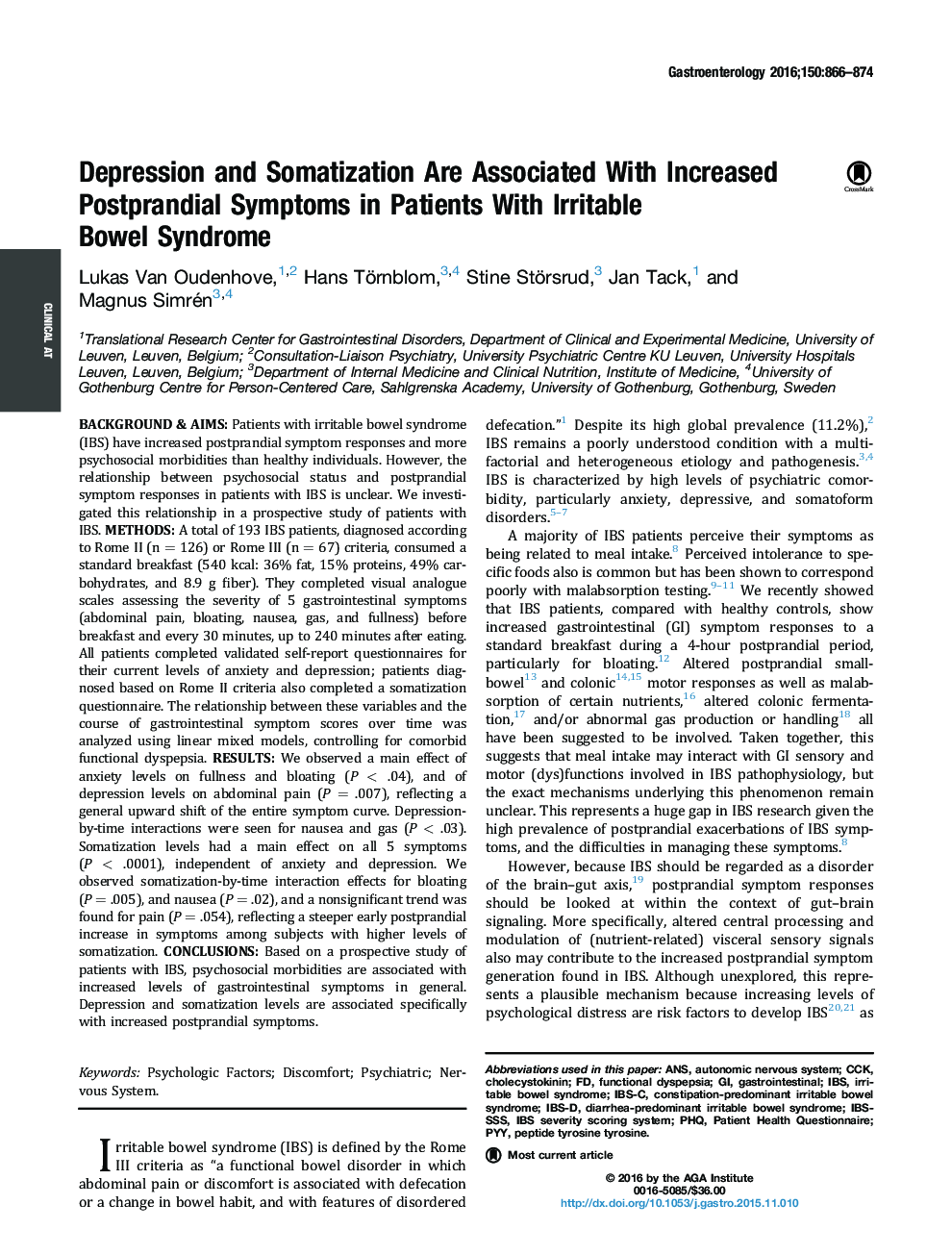| Article ID | Journal | Published Year | Pages | File Type |
|---|---|---|---|---|
| 3292191 | Gastroenterology | 2016 | 9 Pages |
Background & AimsPatients with irritable bowel syndrome (IBS) have increased postprandial symptom responses and more psychosocial morbidities than healthy individuals. However, the relationship between psychosocial status and postprandial symptom responses in patients with IBS is unclear. We investigated this relationship in a prospective study of patients with IBS.MethodsA total of 193 IBS patients, diagnosed according to Rome II (n = 126) or Rome III (n = 67) criteria, consumed a standard breakfast (540 kcal: 36% fat, 15% proteins, 49% carbohydrates, and 8.9 g fiber). They completed visual analogue scales assessing the severity of 5 gastrointestinal symptoms (abdominal pain, bloating, nausea, gas, and fullness) before breakfast and every 30 minutes, up to 240 minutes after eating. All patients completed validated self-report questionnaires for their current levels of anxiety and depression; patients diagnosed based on Rome II criteria also completed a somatization questionnaire. The relationship between these variables and the course of gastrointestinal symptom scores over time was analyzed using linear mixed models, controlling for comorbid functional dyspepsia.ResultsWe observed a main effect of anxiety levels on fullness and bloating (P < .04), and of depression levels on abdominal pain (P = .007), reflecting a general upward shift of the entire symptom curve. Depression-by-time interactions were seen for nausea and gas (P < .03). Somatization levels had a main effect on all 5 symptoms (P < .0001), independent of anxiety and depression. We observed somatization-by-time interaction effects for bloating (P = .005), and nausea (P = .02), and a nonsignificant trend was found for pain (P = .054), reflecting a steeper early postprandial increase in symptoms among subjects with higher levels of somatization.ConclusionsBased on a prospective study of patients with IBS, psychosocial morbidities are associated with increased levels of gastrointestinal symptoms in general. Depression and somatization levels are associated specifically with increased postprandial symptoms.
